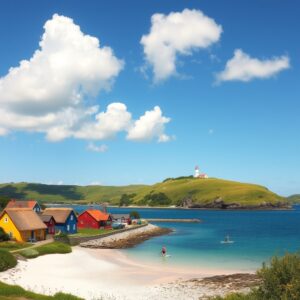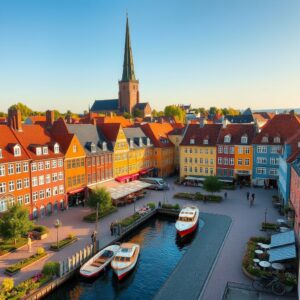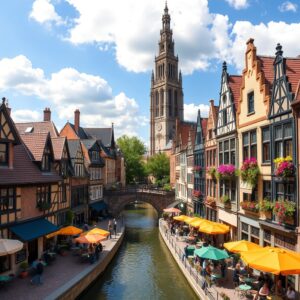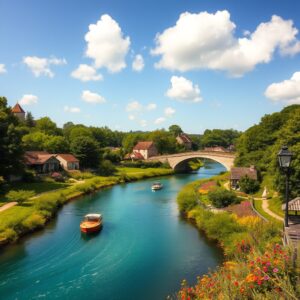
Explore & Play
Discover interesting topics and solve the accompanying crossword puzzle.
Island Nation Crossword | Island nations from Iceland to the Maldives
Island nation crossword to challenge your knowledge. Explore the article comparing island nations from Iceland to the Maldives and discover their unique cultures and landscapes.
Table of Contents
Island nations are fascinating and diverse, each offering unique landscapes, cultures, and histories. To kick off your journey, we invite you to try the Island nation crossword. Test your knowledge of these captivating places, or if you’re unfamiliar with the topic, feel free to dive into the article first. You can always come back to the crossword after gaining a deeper understanding of these island nations.
Island Nation Crossword
You can either fill in the crossword puzzle directly on this page or click the button in the bottom right corner to print it for free.
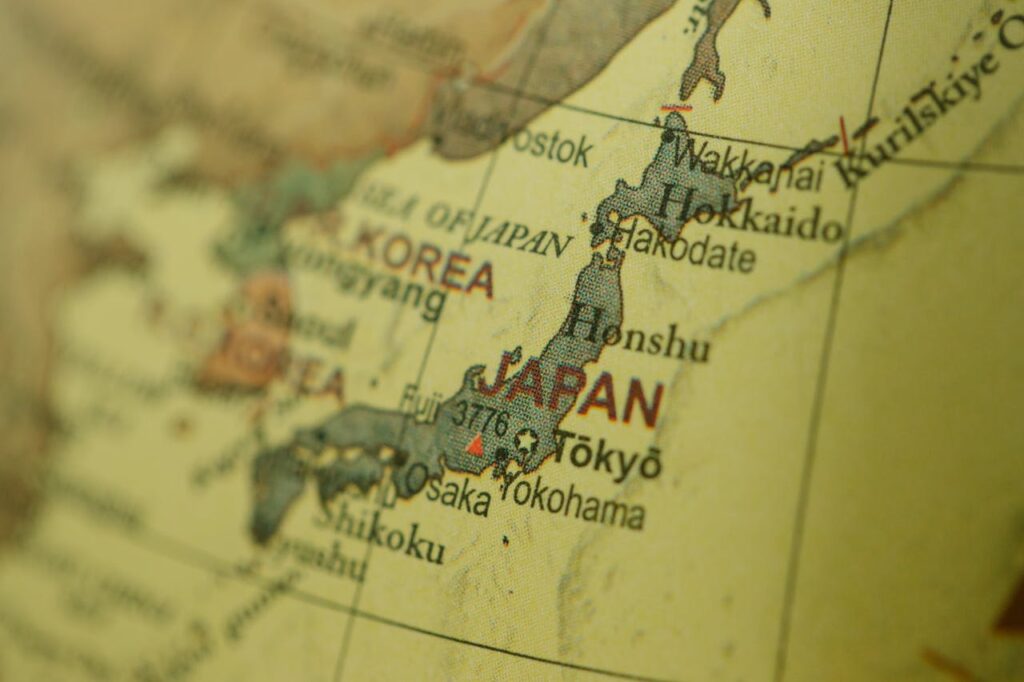
Comparing Island Nations: From the Arctic Wonders of Iceland to the Tropics of the Maldives
Island nations are unique, offering diverse landscapes, rich histories, and fascinating cultures. From the icy wonders of Iceland in the north to the tropical paradise of the Maldives in the south, these nations vary significantly in climate, geography, and lifestyle. Let’s dive into the contrasting characteristics of these islands, from the Arctic landscapes of Iceland to the warm shores of the Maldives.
Section 1: The Arctic Wonders of Iceland and Greenland
Iceland: Land of Fire and Ice
Iceland, a volcanic island nation located in the North Atlantic, is a land of breathtaking contrasts. Known for its rugged terrain, active volcanoes, geysers, and glaciers, Iceland’s natural beauty is unparalleled. The island’s volcanic activity, including eruptions and geothermal activity, has shaped its landscapes, making it an ideal destination for adventure lovers and nature enthusiasts. The country’s capital, Reykjavik, is known for its vibrant cultural scene, including modern art, music, and its rich Viking heritage. Iceland’s warm geothermal pools, such as the famous Blue Lagoon, offer a unique experience in an otherwise chilly environment. Iceland’s history and its geological features make it an important part of the island nation landscape. As the first settled land in the Viking era, Iceland’s historical significance is evident in its well-preserved ruins and sagas.Greenland: The World’s Largest Island
Greenland, though often associated with icy, desolate landscapes, is far more than just a cold region. As the world’s largest island, Greenland offers sweeping ice sheets, spectacular fjords, and majestic mountains. Despite its ice-covered terrain, Greenland has a sparse yet resilient population, mainly made up of Inuit communities who have adapted to the harsh Arctic environment. Greenland’s environmental challenges are profound, as rising temperatures threaten to melt its vast ice sheets. As a part of Denmark, Greenland faces significant issues regarding climate change and its impact on both its environment and the local way of life. Unlike Iceland’s geothermal hot spots, Greenland is defined by its vast frozen tundras, which hold a different kind of natural beauty. The island nation’s rich culture, shaped by thousands of years of indigenous heritage, offers a unique blend of traditions and modern living.Section 2: Island Nations of the Mediterranean and Caribbean
Malta: A Mediterranean Jewel
Located in the heart of the Mediterranean, Malta is a small yet historically rich island nation. Known for its clear blue waters, rugged coastlines, and ancient architecture, Malta is one of the most visited island destinations in the world. The island is home to some of the oldest free-standing structures in the world, including the prehistoric temples of Ħal Saflieni and the Megalithic Temples of Malta. Malta’s history is intertwined with the many civilizations that have ruled over it, including the Phoenicians, Romans, Arabs, Normans, and the British. Today, the island boasts a blend of Mediterranean cultures, where Italian, British, and Arab influences converge. Visitors can explore bustling cities like Valletta, which is also a UNESCO World Heritage site.Cyprus: An Island Divided by History
Cyprus, an island at the crossroads of Europe, Asia, and Africa, has a complex and divided history. Known for its beautiful beaches, ancient ruins, and vibrant Mediterranean culture, Cyprus has faced political tension due to its division between the Greek Cypriot and Turkish Cypriot communities. This division has created a unique cultural identity, blending Greek and Turkish traditions while navigating the challenges of reconciliation. The island’s rich history, dating back to ancient civilizations like the Phoenicians and Greeks, is still visible in its ruins, particularly in the ancient city of Salamis. Despite its division, Cyprus remains a beacon of Mediterranean culture and history.Barbados and the Caribbean Islands
The Caribbean islands are known for their tropical climates, clear blue waters, and vibrant cultures. Barbados, a prominent island in the Caribbean Sea, stands out for its stunning beaches, its colonial history, and its influence on the global music scene, particularly through calypso and reggae music. Barbados was a significant player in the transatlantic slave trade and colonial sugar production, which has left a lasting impact on its culture and demographics. Today, it is an independent island nation that attracts tourists with its resorts, festivals, and world-famous rum.Section 3: Tropical Islands of the Indian and Pacific Oceans
Maldives: A Tropical Paradise
The Maldives is often regarded as the epitome of paradise, with its clear turquoise waters, white sandy beaches, and luxurious overwater bungalows. This island nation is made up of 26 atolls, which are home to more than 1,000 islands. The Maldives offers some of the best diving and snorkeling experiences in the world, with vibrant coral reefs and an abundance of marine life. However, the Maldives is facing an existential crisis as rising sea levels threaten to submerge its low-lying islands. With the highest point being only a few meters above sea level, the Maldives is particularly vulnerable to climate change and the effects of global warming. Despite these challenges, the Maldives remains a symbol of tropical beauty.Seychelles: An Island of Natural Beauty
Seychelles, an archipelago of 115 islands in the Indian Ocean, is renowned for its breathtaking natural beauty and diverse wildlife. Known for its granite islands, white sand beaches, and crystal-clear waters, Seychelles is a paradise for nature lovers and eco-tourists. The island nation is home to unique species of flora and fauna, such as the giant Aldabra tortoises and the endemic Coco de Mer palm. Seychelles has established numerous protected areas and reserves to preserve its fragile ecosystems. Eco-tourism plays a significant role in the economy of Seychelles, attracting visitors who seek an environmentally sustainable vacation experience.Mauritius: A Volcanic Island of Diversity
Mauritius is a volcanic island nation in the Indian Ocean, famous for its cultural diversity, stunning beaches, and lush landscapes. The island is home to a blend of African, Indian, Chinese, and European influences, making it one of the most culturally varied places in the world. Mauritius’s volcanic origins have given rise to dramatic mountain landscapes, with the highest peak being the Piton de la Petite Rivière Noire. The island is also known for its sugarcane plantations, which have been a key element in its economy for centuries. Visitors flock to Mauritius for its beaches, resorts, and natural beauty, which includes lush forests and waterfalls.Sri Lanka: The Jewel of the Indian Ocean
Sri Lanka, located just off the southeastern coast of India, is often referred to as the “Pearl of the Indian Ocean.” Known for its ancient temples, tea plantations, and tropical beaches, Sri Lanka is a culturally rich island with a history that spans over 2,000 years. The island’s historical sites, such as the Sigiriya rock fortress and the ancient city of Anuradhapura, reflect its deep cultural and religious significance. Sri Lanka is also home to lush rainforests, wildlife reserves, and picturesque beaches, making it a popular destination for eco-tourism and adventure travel. Its diverse landscapes offer something for every type of traveler, from nature enthusiasts to history buffs.Section 4: Island Nations in the Pacific Ocean
Fiji: A Pacific Paradise
Fiji is a group of islands in the South Pacific that offers stunning beaches, vibrant coral reefs, and a rich cultural heritage. Known for its warm hospitality, Fiji is one of the most welcoming destinations in the Pacific. The island nation boasts over 300 islands, many of which are uninhabited and offer pristine natural beauty. Fiji’s traditional Fijian culture, including its dances, music, and arts, plays a central role in its identity. The nation is also famous for its marine biodiversity, which attracts divers and snorkelers from around the world.New Zealand: An Island Nation with Majestic Landscapes
New Zealand is an island nation made up of two main islands, known for its dramatic landscapes, ranging from snow-capped mountains and active volcanoes to lush forests and rolling hills. The North and South Islands offer distinct experiences, with the North Island being home to Maori culture and vibrant cities like Auckland, while the South Island boasts rugged terrain and scenic fjords. The country is also famous for its wildlife, including unique species like the kiwi bird and the Hector’s dolphin. As the setting for many famous films, including The Lord of the Rings, New Zealand’s natural beauty has captured the world’s attention.Australia: The Island Continent
Although often considered a continent, Australia is technically the largest island in the world. Known for its diverse ecosystems, including deserts, tropical rainforests, and stunning coastlines, Australia offers a wealth of natural beauty and cultural landmarks. From the Great Barrier Reef to the vast outback, Australia’s landscapes are varied and vast. The country’s rich indigenous culture and modern cities like Sydney and Melbourne make it a unique island nation with something for everyone, from nature enthusiasts to city lovers.Section 5: Lesser-Known Island Nations with Unique Features
Palau: A Hidden Gem in the Pacific
Palau, an island nation in the Pacific, is often overlooked by tourists but offers some of the world’s most spectacular diving and snorkeling opportunities. With crystal-clear waters and vibrant coral reefs, Palau is a paradise for marine life enthusiasts. The nation is also committed to environmental sustainability, with protected marine areas and efforts to preserve its natural heritage. Palau’s biodiversity, both on land and in the sea, makes it one of the Pacific’s hidden gems.Kiribati: An Island Nation Facing Climate Challenges
Kiribati is a small island nation in the central Pacific, known for its vulnerability to climate change. Rising sea levels threaten to submerge many of its low-lying islands, making Kiribati one of the most endangered nations in the world. Despite these challenges, the people of Kiribati continue to advocate for international action on climate change while preserving their unique culture and traditions. The nation’s resilience in the face of such adversity serves as an example of the impact of climate change on island nations.Tonga: The Polynesian Kingdom
Tonga, a Polynesian kingdom in the South Pacific, is one of the few remaining monarchies in the region. Known for its rich culture, Tongan traditions, and warm hospitality, the island nation offers a glimpse into the Polynesian way of life. Tonga’s remote location has helped it maintain its unique cultural practices, including traditional ceremonies, dances, and language. The island is also famous for its pristine beaches and coral reefs, attracting travelers seeking an authentic Polynesian experience.In Conclusion: A World of Island Diversity
Island nations across the globe offer an incredible range of experiences, from the frozen terrains of Iceland to the tropical beauty of the Maldives. Each island is unique, with its own culture, geography, and natural wonders. Whether you’re interested in exploring the volcanic landscapes of Iceland or relaxing on the beaches of Barbados, island nations provide endless opportunities for adventure and discovery. Call to Action: Play the Crossword Want to test your knowledge of island nations? Play our crossword puzzle and discover more about these fascinating island nations around the world!Share to...
Thank you for reading 👋
I hope you enjoy the content.
I hope you enjoy the content.
Want to receive our daily crossword puzzle or article? Subscribe!
You may also be interested in
Share to…
Want to receive our daily crossword puzzle?
-
Jigsaw Puzzles
Zodiac Ink Dog Puzzle: Artful Elegance 250 | 300 | 500 Pieces
kr 348,00 – kr 439,00Price range: kr 348,00 through kr 439,00 Select options This product has multiple variants. The options may be chosen on the product page -
Jigsaw Puzzles
Art Nouveau Puzzle – White Rabbit in a Whimsical Garden 250 | 300 | 500 Pieces
kr 348,00 – kr 439,00Price range: kr 348,00 through kr 439,00 Select options This product has multiple variants. The options may be chosen on the product page -
Jigsaw Puzzles
Maine Coon Cat Ink Wash Puzzle 250 | 300 | 500 Pieces
kr 348,00 – kr 439,00Price range: kr 348,00 through kr 439,00 Select options This product has multiple variants. The options may be chosen on the product page
